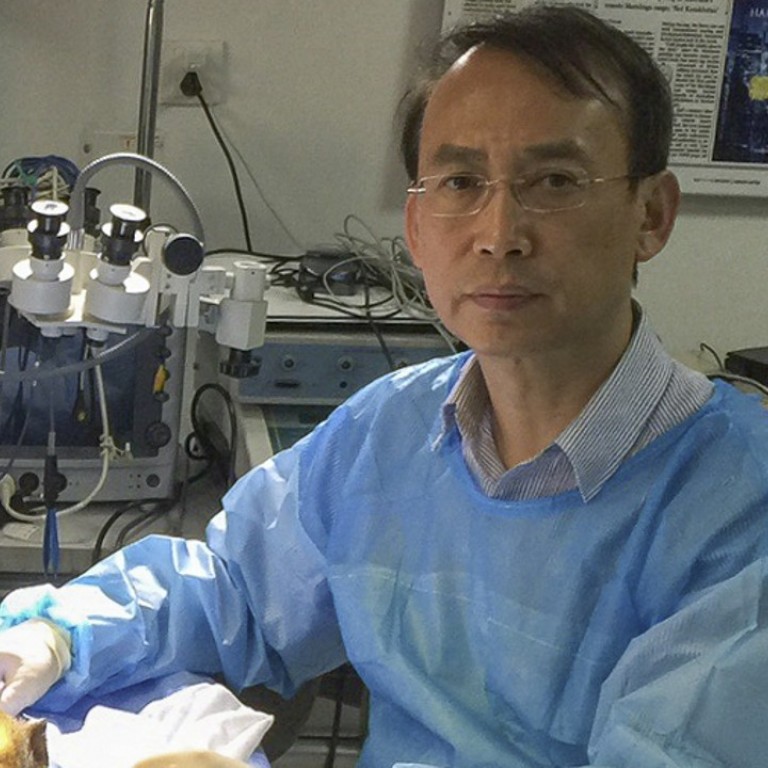
Chinese surgeon tackles head transplant critics in countdown to world first
Doctor says test run on corpses last week helped explore technical issues and results will be published soon
A Chinese surgeon aiming to perform the world’s first human head transplant in China has defended the controversial procedure, saying similar attacks were levelled at pioneering kidney transplants more than 60 years ago.
Dr Ren Xiaoping from Harbin Medical University told China National Radio on Saturday that many now routine operations were described as unethical when they were first performed.
“Our society is an open one and our job is to solve scientific and technological problems in our professional field,” Ren said.
“The head transplant is a solution for all clinically incurable diseases.”
Ren said he and Italian doctor Sergio Canavero rehearsed the procedure on two corpses, reconnecting the spinal cord and blood vessels of the head of one cadaver with those on the body of another in an 18-hour experiment last week.
The plan now is to perform the same procedure but to attach a disease-free head to the healthy body of a brain-dead patient.
The announcement of the operation’s date is expected within days.
But critics in the medical community say it is premature to perform such a transplant on humans and a test run on cadavers is no guarantee of success.
Ren said the results of last week’s experiment would be published in a medical journal in the next few days.
“There has never been such a procedure in surgery. We completed the design of the operation and applied for publication in a medical journal. After strict scrutiny, top experts in the field believed our approach was very reasonable,” Ren said in the radio interview.
Ren said the test run on the corpses helped the doctors explore various technical options with the surgery and ways to repair tissue.
Professor Wang Yue, from Peking University’s Institute for Medical Humanities, to China National Radio medical experiments should be given some leeway but procedures should be regulated strictly if they were to become mainstream.
Wang said the primary responsibility was to ensure the safety of the patient, and the operation should only be allowed to go ahead if it was humane and had been proven viable in animal trials.

